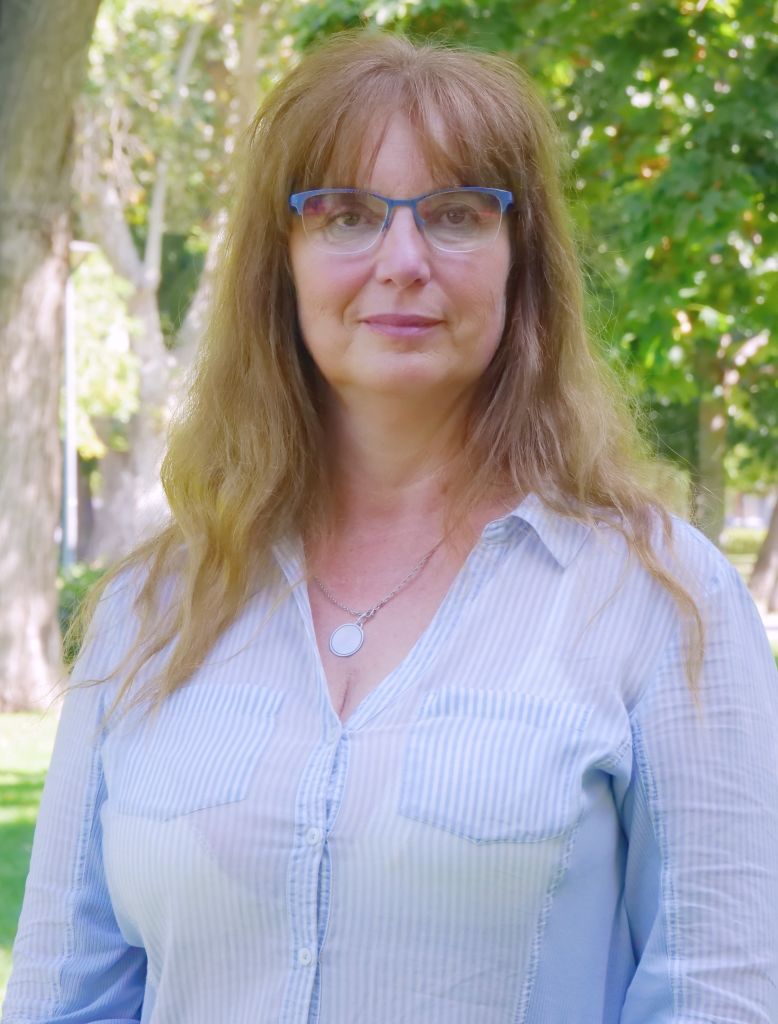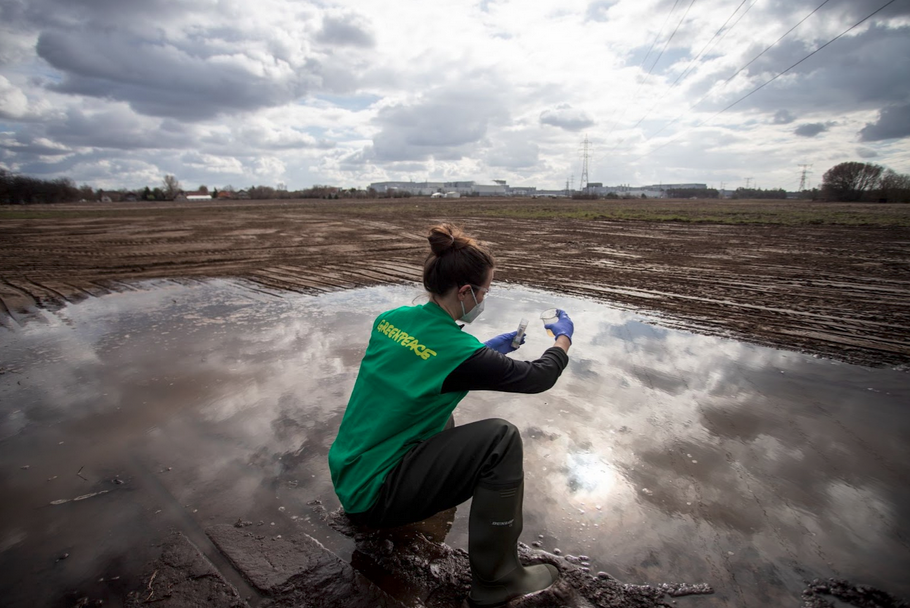The https://english.atlatszo.hu use cookies to track and profile customers such as action tags and pixel tracking on our website to assist our marketing. On our website we use technical, analytical, marketing and preference cookies. These are necessary for our site to work properly and to give us inforamation about how our site is used. See Cookies Policy
Greenpeace finds fetotoxic solvent in Göd wastewater pipe burst
Greenpeace Hungary has found toxic solvents used for battery production in wastewater spilled near the Samsung battery factory in Göd. Greenpeace was alerted by the Göd-ÉRT Association at the end of February to a burst pipe near the plant, where the organisation took samples of the water spilling in large quantities onto the farmland next to the plant. Laboratory analysis of the water samples revealed significant levels of the severely harmful NMP solvent at 200 micrograms per litre.
On 21 February 2024, Greenpeace was informed by the local Göd-ÉRT Association that a pipe near the Samsung SDI Hungary battery factory in Göd had burst and was leaking wastewater into the environment. The burst pipe was repaired shortly, but the pollution remained in large puddles in the nearby farmland. A representative of the Göd-ÉRT Association took samples from the freshly spilled water, while Greenpeace staff took samples from the adjacent field.

The tests showed the presence of a compound called N-methyl pyrrolidone (NMP), also used in battery production, in both samples at 200 micrograms per litre. The toxic solvent can cause severe respiratory, eye, and skin irritation and harm to the unborn child if inhaled and its use is subject to specific authorisation in the EU.
We previously reported that an independent investigation in May 2022 found the presence of NMP in the water of the Göd wells, and we also reported that the authorities have not carried out any investigation to investigate the water contamination.
The Göd-ÉRT Association requested an official inspection and investigation into the water contamination and filed a police report. The Dunakeszi District Prosecutor’s Office overturned the previous decision of the police and ordered the proceedings to continue, but also said that since a full environmental review of the Samsung factory was launched in June 2023, it would only decide whether a crime had indeed been committed following “further investigative actions” in the course of the review.
The environmental review of Samsung’s battery factory concluded with the plant being granted a ten-year environmental permit last December. During the procedure, Samsung SDI carried out water tests on its industrial site, which did not reveal any pollution, and the environmental authority also ordered the installation of monitoring wells on the factory site. However, no official investigation was carried out into the earlier NMP pollution.
In February this year, Átlátszó revealed that, according to air pollution data from the National Environmental Information System, the Göd battery factory emitted 81.4 tonnes of toxic NMP in 2021. We also wrote that the factory, operating without an environmental permit since 2018, did not apply the legally required emission limit value for NMP.
According to Greenpeace Hungary, this is a repeated case of a toxic substance that is extremely dangerous to human health being released into the environment in Göd. There have also been a series of accidents in battery plants operating in Hungary.
“Currently, without independent and strong authorities, the state cannot guarantee the safety of workers and residents. Greenpeace is calling for much tougher sanctions than at present for plants that breach environmental and labor standards. If necessary, suspend their operations or close these dangerous factories. A responsible government’s job is to protect the country’s population and preserve its natural assets, not to help big companies at any cost. The handling of a series of accidents and pollution cases at battery factories subsidised by billions of taxpayers’ money shows that the Hungarian government is primarily looking after the interests of big business and is not capable of protecting the public from environmental harm.” – said Gergely Simon, a chemical expert at Greenpeace Hungary.
Translated by Zita Szopkó. The original, Hungarian version of this story was written by Zsuzsa Bodnár and can be found here. The article was produced with the support of the Union Values Programme. Cover photo: Water sampling by a Greenpeace Hungary staff member in Göd on 21 February 2023 (Photo: Zsuzsi Dörgő/Greenpeace).
Share:
Your support matters. Your donation helps us to uncover the truth.
- PayPal
- Bank transfer
- Patreon
- Benevity
Support our work with a PayPal donation to the Átlátszónet Foundation! Thank you.
Support our work by bank transfer to the account of the Átlátszónet Foundation. Please add in the comments: “Donation”
Beneficiary: Átlátszónet Alapítvány, bank name and address: Raiffeisen Bank, H-1054 Budapest, Akadémia utca 6.
EUR: IBAN HU36 1201 1265 0142 5189 0040 0002
USD: IBAN HU36 1201 1265 0142 5189 0050 0009
HUF: IBAN HU78 1201 1265 0142 5189 0030 0005
SWIFT: UBRTHUHB
Be a follower on Patreon
Support us on Benevity!

